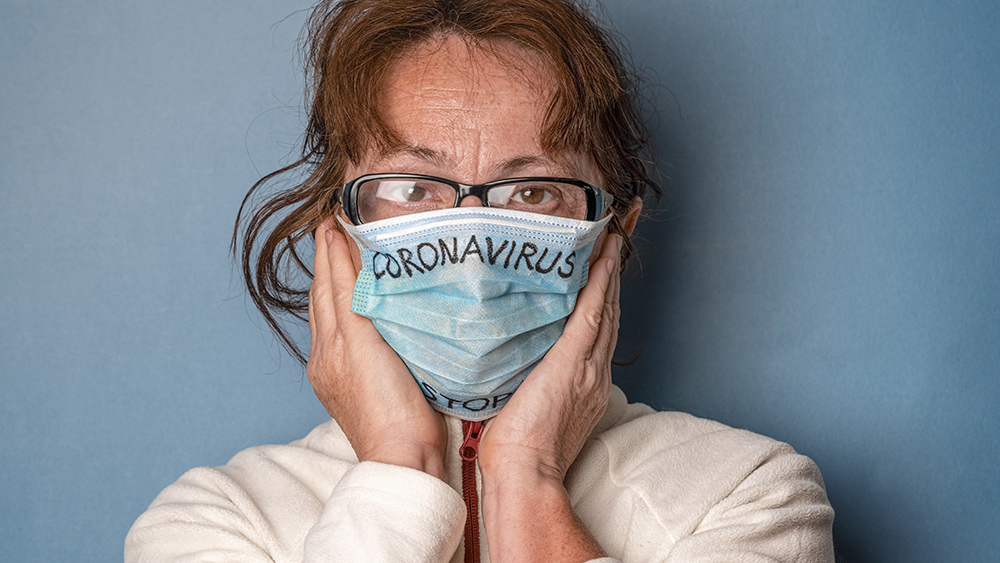Texas boy dies after being exposed to BRAIN-EATING amoeba in tap water
10/07/2020 / By Zoey Sky

Not every home is fortunate enough to have access to clean drinking water. On Saturday, Sept. 26, officials issued a disaster declaration in Lake Jackson, Texas, after a brain-eating amoeba infected a six-year-old boy.
Lake Jackson’s water supply potentially contaminated
After the incident, Lake Jackson officials placed the city under a “do not use water order” and requested an emergency declaration from the state.
“The City of Lake Jackson, County of Brazoria, Texas, is facing significant threats to life, health and property due to contaminated drinking water,” read the city’s emergency request to Governor Greg Abbott. “The impact of this threat is severe. The potential damages include: sickness and death,” the statement concluded.
Mayor Bob Sipple warned that the incident is of such severity and magnitude and that Lake Jackson needs help to effectively address the threat and prevent more casualties.
On Sept. 24, the Texas Commission on Environmental Quality (TCEQ) notified the Brazosport Water Authority of the potential contamination of its water supply by Naegleria fowleri.
The water authority first advised eight communities not to use tap water, except for flushing toilets. However, on Saturday it lifted that warning, with the exception of Lake Jackson. (Related: Science explains why your tap water isn’t safe.)
Lake Jackson has a population of over 27,000 and it is the site of the authority’s water treatment plant. The advisory also was canceled for two state prisons and Dow Chemical’s Freeport works. The Brazosport Water Authority uses the Brazos River as its water source.
A terrifying brain-eating amoeba
Lake Jackson first became aware of the amoeba after a six-year-old boy was infected. On Sept. 8, Tuesday, the City of Lake Jackson was contacted by the Brazoria County Health Department about the boy, who was hospitalized due to Naegleria fowleri, a rare and often fatal brain-eating amoeba.
Following the boy’s diagnosis, the family reported two possible water sources where he could have been exposed to the amoeba: The Lake Jackson Civic Center Splash Pad and a hose at his home.
Lake Jackson officials then tested both potential sources, along with others. Initial test results were negative for N. fowleri. However, three out of eleven samples submitted to the Centers for Disease Control and Prevention (CDC) came back positive after preliminary testing.
The three positive results came from water samples from the splash pad storage tank, a home hose bib at the boy’s home and a “dead-end fire hydrant in downtown.” The city reported that the three samples were the only ones taken by the filtration collection method, which needs a larger quantity of water to run.
What is Naegleria fowleri?
According to the CDC, N. fowleri is “a free-living microscopic amoeba” or single-celled living organism. The amoeba is commonly found in warm freshwater and soil.
N. fowleri often infects people when they are exposed to contaminated water that enters their nose. The amoeba then travels to the brain, where it can cause a rare and debilitating disease called primary amoebic meningoencephalitis.
In most cases, the infection is fatal. Infection commonly occurs when people swim or dive in warm freshwater places, like lakes and rivers. Very rarely, infections can occur when contaminated water from other sources, like inadequately chlorinated swimming pool water or heated and contaminated tap water, enters a person’s nose.
Findings showed traces of chlorine in all three positive samples found in Lake Jackson.
The CDC reports that there were 34 N. fowleri infections reported in the U.S. between 2009 and 2018. In most of the recorded cases, patients were infected in recreational water.
At least three people were infected after performing nasal irrigation using contaminated tap water. One patient was infected by contaminated tap water used on a backyard slip-n-slide.
N. fowleri infection prevention and control
As of press time, Lake Jackson has lifted its “do not use” advisory. The TCEQ is working closely with the city, the Texas Department of State Health Service (DSHS), the CDC, and the Environmental Protection Agency (EPA) to resolve this water issue.
But a “boil water notice” remains in effect, together with additional precautionary measures. Officials are enforcing a stepped approach that will eventually transition the status of the system back to normal.
While the city’s water system is being disinfected and flushed, boiling tap water ensures that it is safe for drinking and cooking. For other uses like bathing and showering, the TCEQ and DSHS advise residents to take the following precautions suggested by the CDC:
- Don’t let water go up to your nose or sniff water into your nose while bathing, showering, washing your face, or swimming.
- Don’t jump into or put your head under bathing water.
- Run bath and shower taps and hoses for at least five minutes before use to flush out the pipes.
- Don’t let children play with hoses, sprinklers, or toys or devices that may accidentally squirt water up their nose.
- Thoroughly clean small, hard plastic or blow-up pools by emptying, scrubbing and letting them dry after each use.
- Use boiled and cooled, distilled, or sterile water for making sinus rinse solutions for neti pots.
- Keep swimming pools properly disinfected before and during use. To disinfect pools, use free chlorine at one to three parts per million (ppm) and pH 7.2 to 7.8. For hot tubs or spas, use free chlorine at two to four ppm or free bromine at four to six ppm and pH 7.2 to 7.8.
- Never place a hose directly into the skimmer box. Make sure your pool filter is running.
- Don’t top off pool water by leaving a hose in the body of your pool.
The advisory will remain in place until the authority’s water system has been thoroughly flushed and tests on water samples confirm that the system’s water is safe to use. In a statement, the authority announced that it has yet to confirm how long it would take before the tap water in Lake Jackson is once again safe to use.
Sources include:
Tagged Under: amoeba, brain-eating amoeba, city water, clean water, infections, infectious diseases, Lake Jackson, Naegleria fowleri, primary amebic meningoencephalitis, tap water, Texas, Water contamination, water filters, water health



















